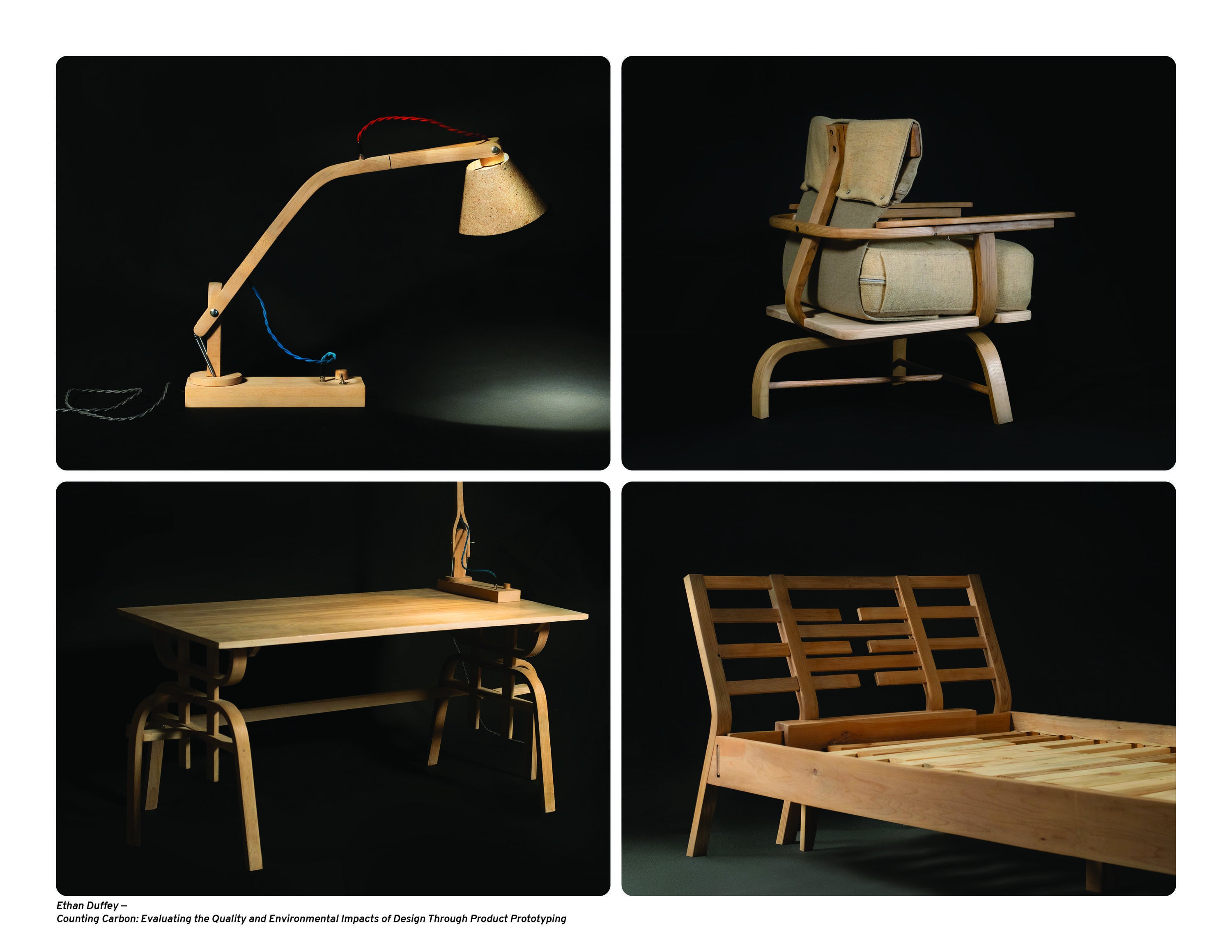Counting Carbon: Evaluating the Quality and Environmental Impacts of Design Through Product Prototyping

Abstract:
Industrialisation has brought numerous advancements to the architecture and design fields, many of which have allowed humanity to produce more efficiently, using less energy and human labour. Simultaneously, mass production has resulted in mass overconsumption, a populous that is disconnected from the origins of their belongings, and a planet whose resources and atmosphere have been propelled out of equilibrium. The primary consistent numeric metric available for evaluating a good design is its cost, which often leaves consumers to rely on appearance and the opinions of others to make buying decisions. This project creates a system for designers to evaluate and then improve the carbon emissions of prototypes, in conjunction with a universal graphic that clearly communicates this evaluation to consumers in a consistent way. The system uses carbon as a base value to convey the energy expended in the production of a product. It uses a scoring system to rate the design’s adaptability, maintainability, and reliability—three indicators of overall longevity. This evaluation system combined with experimental prototypes demonstrates the possibility of standardised sustainable design by assessing products under a unified set of parameters. It seeks to remind people to revere objects as things to be repaired, not replaced, and advocates for a better balance between the environment we inherit and the commodities we manufacture.
The examining committee is as follows:
Supervisor: David
Correa
Committee
member: Jane
Mah
Hutton
Internal-external
reader:
Heinz
Koller
External:
Christopher
Romano
The
defence
examination
will
take
place:
Tuesday,
May
3rd, 2022,
2:00pm
In
person: Room
2026
Remote: Contact Tina for
the
Teams
Link
The
committee
has
been
approved
as
authorized
by
the
Graduate
Studies
Committee.
A
copy
of
the
thesis
is
available
for
perusal
in
ARC
2106A.